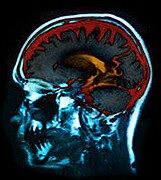Speedy 'Mini-Stroke' Care Pays Off
It cut odds of a later, major stroke by 80%, researchers say.
|
E-mail this article
Subscribe to news
Printer friendly version
|

(SOURCES: The Lancet, The Lancet Neurology, news releases, Oct. 9, 2007)
TUESDAY, Oct. 9 (HealthDay News) -- Quick assessment and treatment of people who've suffered a minor stroke or transient ischemic attack (TIA, or "mini-stroke") cuts their risk of having a major stroke by 80 percent, two new studies find.
A TIA causes symptoms similar to a stroke but, unlike a stroke, the symptoms tend to disappear within several hours.
The first study, by British researchers at the University of Oxford, looked at two groups of patients. In the first group, the median time to assessment in clinic after a minor stroke or TIA was three days, and the median time to first prescription of treatment was 20 days. In the second group, both assessment and prescription took just one day.
The 90-day risk of subsequent major stroke was more than 10 percent (32 out of 310 patients) in the first group, compared with only about 2 percent (6 of 281 patients) in the second group. That risk reduction was independent of age and sex, and early treatment didn't boost patients' risk of bleeding or other complications, according to the study, which was reported online Oct. 9 in the journal The Lancet.
"Our data indicate that urgent assessment and early initiation of a combination of existing preventative treatments can reduce the risk of recurrent stroke after TIA or minor stroke by about 80 percent," the team wrote. "Extrapolated across the U.K. population, this equates to the prevention of nearly 10,000 strokes per year," they said.
"Follow-up treatment is required to determine long-term outcome, but these results have immediate implications for the service provision and public education about TIA and minor stroke," the investigators concluded.
These findings "are very important and should promote renewed attention to urgent care of patients with TIAs and minor strokes," Dr. Naeem Dean of the Royal Alexandra Hospital in Edmonton, Alberta, Canada, and Dr. Ashfaq Shuaib of the University of Alberta in Edmonton, wrote in an accompanying journal Comment.
They noted that patients who've had a minor stroke or TIA aren't disabled, and if "the risk of a disabling stroke can be substantially reduced in this population, we strongly recommend that patients should receive the same urgent attention as is provided for those with acute coronary syndrome."
In the second study, also published online Oct. 9 in The Lancet Neurology, French researchers established a 24-hour hospital clinic to treat patient with suspected cerebral or retinal TIAs. Patient assessment took place within just four hours of admission.
Of the almost 1,100 patients treated at the clinic, the 90-day stroke rate was 1.24 percent --- about 80 percent lower than the close to 6 percent rate predicted by scores calculated on the basis of age, blood pressure, clinical features, diabetes and duration of symptoms.
The study authors said their findings "show that prompt evaluation and treatment of patients with TIA in a dedicated outpatient unit is associated with a lower than expected risk of subsequent stroke. Because almost three-quarters of patients were discharged home on the same day as diagnosis, the TIA clinic is also likely to involve lower costs and greater patient satisfaction about their management than is treatment without such a clinic."
More information
The American Academy of Family Physicians has more about stroke. 
Copyright © 2007 ScoutNews, LLC. All rights reserved. 
HealthDayNews articles are derived from various sources and do not reflect federal policy. healthfinder.gov does not endorse opinions, products, or services that may appear in news stories. For more information on health topics in the news, visit the healthfinder.gov health library.